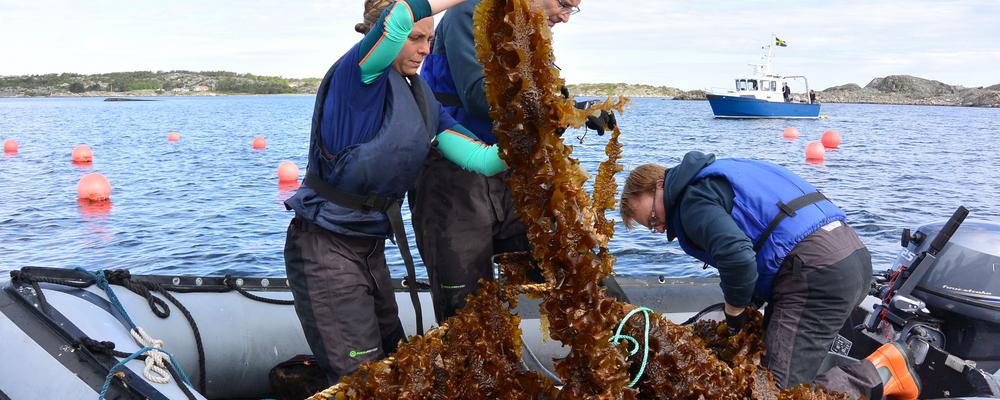
Nordic Master's Programme in Sustainable Production and Utilization of Marine Bioresources (MAR-BIO, N2MAB)
Our unique research-based Nordic Master's program integrates aspects within biology, environmental and social sciences and law for sustainable production and utilisation of marine bioresources.
The programme is organised by three Nordic universities:
- University of Gothenburg (Sweden)
- Nord University (Norway)
- Holar University (Iceland)
Mobility and network building is a key for the program. Thus, there are three mandatory weeks of mobility during the first three mandatory, introductory 5 credits (ECTS) courses, placed at one of the three Nordic partner universities each. From semester 2 and onwards you should also do a longer mobility (30 credits, ECTS) when you chose courses from any of the two partner universities that are not your home university. This means that through the programme you will have a fantastic opportunity to visit and get to know the research and marine bioresource environment of all three countries!
We will prepare you for a number of different job opportunities – as a PhD student or within the industry – within marine circular economy. You will develop knowledge and skills within marine food production systems. You will build networks and partnership opportunities with academic institutions, the industry and authorities.
Our programme targets inter- and transdisciplinary approaches to aquaculture along with the interactions between aquaculture, fisheries, and production and utilization of marine bioresources, also including sustainable development and entrepreneurship.
A global challenge
Do you want to help solve this major global challenge?One of the greatest challenges of our time is to find solutions for increased production of healthy food to meet the needs of a growing world population.
Are you one of the next generation professionals aiming to reduce the ecological footprint, protecting natural resources and ecosystems and advancing rural development? Would you like a career within the area of sustainable marine circular economy?
If so, you should apply for our Nordic Master Programme in Sustainable Production and Utilisation of Marine Bioresources – MARBIO!
To apply for our Nordic master’s programme in Sustainable Production and Utilization of Marine Bioresources you will need to apply through one of the three universities behind the programme:
Göteborgs universitet, 2022
- Jordan Sutherland: Media representation of aquaculture in Sweden
- Moritz Hempel: Starting from the bottom: using low trophic species in salmon feeds. Assessing the environmental performance of novel salmon feeds with LCA
- Pearly Huiyi Teo: Development of sustainable "Blue-green" products and herring as food in public and school meals.



